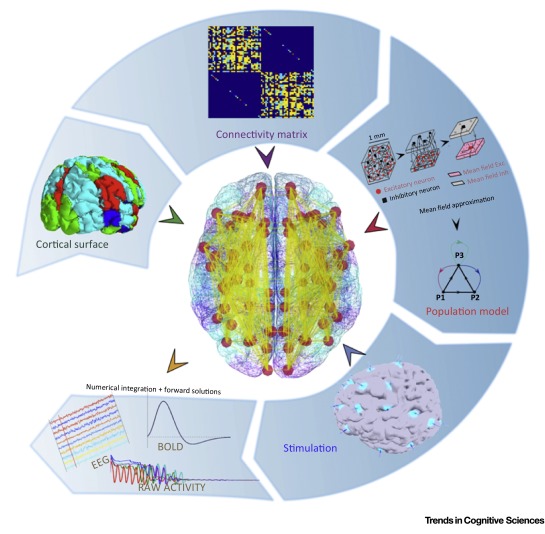Taking time to think has advantages for the human brain
According to a study published in the advanced online edition of the journal Trends in Cognitive Sciences led by Gustavo Deco, an ICREA researcher at UPF and the director of the Center for Brain and Cognition (CBC), working jointly with prestigious international neuroscientists.

Slowness of thought is not necessarily a handicap, but rather could be indicative of optimal brain function, according to a paper published in Trends in Cognitive Sciences by a group of prestigious international neuroscientists (Kringelbach, McIntosh, Ritter and Jirsa led by Gustavo Deco, an ICREA researcher in the Department of Information and Communication Technologies (DTIC) and director of the Center for Brain and Cognition (CBC) at UPF.
The study shows that certain anatomical and dynamic constraints of the brain help to optimize its functionality. According to Deco, ‘The main idea of the study is that the brain’s inherent dynamic, the one corresponding to resting-state activity, is slow’.
This is due to brain connectivity and the fact that this slowness ensures an optimal level of functionality when the brain is stimulated to perform a given task.
‘Hence, an external stimulus (related to a task or process) resonates optimally with the brain’s inherent latencies and, consequently, is processed more effectively’, Deco added.
The study sought to identify the role played by optimal information processing while a given task is being performed and proposes that the combination of imaging techniques with whole-brain computational modelling can shed light on fundamental brain function processes, in both physiologically normal (healthy) and diseased brains.
El cervell, un òrgan vital massivament interconnectat
Com explica Deco, "aquests resultats poden ser descrits de forma mecànica gràcies al modelatge computacional complet del cervell que relaciona la funcionalitat òptima amb les teories físiques de metaestabilidad, segons les quals el cervell és un òrgan vital massivament interconnectat en estat metastable". Un estat que aporta continuïtat i estabilitat a llarg termini i, al mateix temps, té la capacitat per fer transicions ràpides quan es requereix. Aquesta característica combinada amb una ràpida capacitat reactiva, molt possiblement ha conferit avantatges evolutius a l'espècie humana.
The brain, a massively interconnected vital organ
According to Deco, ‘It was possible to describe these results mechanically using whole-brain computational modelling, which relates optimal functionality to physical theories of metastability, according to which the brain is a massively interconnected vital organ in a metastable state.’ This state provides continuity and long-term stability, but is also able to make quick transitions when required. This characteristic, combined with the capacity to react quickly, likely gave humans evolutionary advantages.
Cited paper:
Morten L. Kringelbach, Anthony R. McIntosh, Petra Ritter, Víktor K. Jirsa, Gustavo Deco. (2015). The Rediscovery of Slowness: Exploring the Timing of Cognition. Trends in Cognitive Sciences. DOI: http://dx.doi.org/10.1016/j.tics.2015.07.011.
Related e-news:
Gustavo Deco participates in a B-Debate on cortical function and mental health
